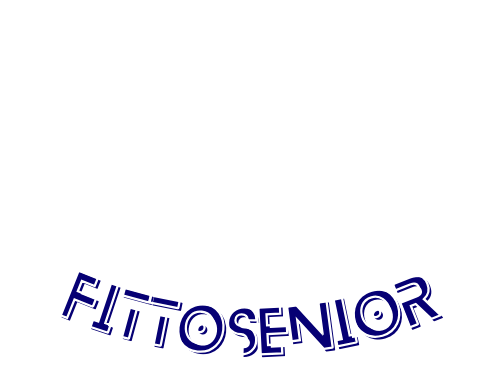Physical activity is essential for seniors to maintain overall health and well-being. Among various exercise options, tennis stands out as a beneficial sport that offers numerous advantages for seniors. In this article, we will explore the health benefits of tennis, delve into proper form and technique, discuss safety tips, and highlight common mistakes to avoid.
Understanding the Health Benefits of Tennis
Tennis is a dynamic sport that provides a wide range of health benefits for seniors. Engaging in regular tennis sessions can significantly contribute to cardiovascular fitness and endurance. The fast-paced nature of the game improves agility, coordination, and balance, promoting better motor skills. Additionally, the physical demands of tennis help increase bone density and strength, reducing the risk of osteoporosis. Moreover, playing tennis stimulates mental well-being and cognitive function, enhancing focus, memory, and overall brain health.
Proper Form and Technique in Tennis
Mastering the proper form and technique in tennis is crucial for seniors to maximize their performance and prevent injuries. It all starts with understanding the importance of a proper grip and hand positioning on the racket. The correct body positioning, including a balanced stance and the right posture, ensures effective strokes and optimal power transfer. Equally important is mastering footwork and movement on the court, which allows seniors to reach shots efficiently and maintain good court coverage. Lastly, seniors should focus on developing different types of shots, such as forehand, backhand, and serve, to have a versatile game.
Physical Benefits of Tennis for Seniors
Tennis offers a comprehensive full-body workout, engaging various muscle groups simultaneously. The constant movement, swinging, and hitting involved in the game result in increased aerobic capacity and calorie burning. Moreover, the sport strengthens core muscles, contributing to improved posture and stability. Seniors who engage in regular tennis sessions often experience positive changes in joint mobility and flexibility, promoting overall physical well-being.
Mental and Cognitive Benefits of Tennis
Beyond the physical advantages, tennis has significant mental and cognitive benefits for seniors. The intense focus required during gameplay promotes stress reduction and uplifts mood, resulting in enhanced mental well-being. The game’s strategic nature demands concentration and sharpens cognitive abilities such as problem-solving and decision-making. Additionally, the social aspect of tennis, including opportunities for interaction and camaraderie, contributes to overall mental and emotional health.
Warm-up and Stretching Exercises for Tennis
Prioritizing warm-up exercises before playing tennis is crucial for injury prevention and optimal performance. Seniors should engage in dynamic stretching routines that specifically target tennis movements. These exercises prepare the muscles and joints for the physical demands of the game while improving flexibility and range of motion. Implementing stretching routines after playing helps alleviate muscle tension and reduces the risk of post-activity soreness.
Safety Tips for Seniors Playing Tennis
To ensure a safe and enjoyable tennis experience, seniors should adhere to specific safety guidelines. It is essential to consult with a healthcare professional before starting any new exercise regimen, including tennis. Wearing proper footwear with adequate support and cushioning is vital to prevent foot and ankle injuries. Additionally, seniors should stay hydrated and manage heat-related risks by taking regular breaks and seeking shade when necessary. Listening to the body’s signals and avoiding overexertion is crucial to prevent strain and fatigue.
Common Mistakes to Avoid in Tennis
Seniors should be mindful of common mistakes to optimize their tennis performance and reduce the risk of injuries. Overhitting and using excessive force can lead to muscle strains and joint injuries. Maintaining proper footwork and positioning on the court is essential to avoid imbalance and potential falls. Neglecting recovery and rest days can result in overuse injuries and hinder progress. Lastly, seniors should never underestimate the importance of proper technique and form, as it ensures efficient and injury-free gameplay.
Finding Suitable Tennis Facilities and Programs
Locating suitable tennis facilities and programs is essential for seniors interested in playing tennis. Many communities offer public tennis courts, while some may require membership to access private clubs. Seniors can explore senior-friendly tennis programs or leagues that cater to their specific needs and skill levels. Additionally, considering tennis lessons or clinics can provide valuable guidance and opportunities for skill improvement.
Partnering and Doubles Play in Tennis
Playing doubles in tennis offers numerous benefits for seniors. It allows for socialization and cooperation with partners, enhancing the overall experience. Effective communication and teamwork strategies become essential when playing doubles, as seniors can strategize and adjust their game based on each partner’s strengths and weaknesses. Doubles play can add an exciting dimension to tennis and provide a more dynamic and interactive playing environment.
Strategies for Injury Prevention in Tennis
Seniors should prioritize injury prevention strategies to ensure a long and enjoyable tennis journey. Establishing proper warm-up and cool-down routines is crucial to prepare the body for physical activity and aid in recovery. Listening to the body’s signals and taking breaks when needed helps prevent overuse injuries and allows for optimal rest. Implementing targeted strengthening exercises, especially for areas prone to injuries like the shoulders and knees, can improve stability and reduce the risk of strain. Additionally, incorporating cross-training activities into the fitness routine promotes overall balanced fitness.
Tennis Equipment and Gear for Seniors
Selecting the right tennis equipment and gear is essential for seniors to play comfortably and safely. Choosing a suitable tennis racket with the correct grip size ensures better control and minimizes the risk of wrist and arm injuries. Additionally, seniors should consider using tennis balls that provide optimal bounce and are appropriate for their skill level. Exploring optional equipment such as grip aids and vibration dampeners can further enhance the playing experience and reduce strain on the joints.
Hydration and Nutrition Tips for Tennis Players
Staying hydrated is crucial during tennis matches to maintain performance and prevent dehydration. Seniors should drink water before, during, and after playing to replenish fluids lost through sweat. Optimal nutrition is also essential to support energy levels and aid in muscle recovery. Seniors should focus on consuming a balanced diet rich in lean proteins, fruits, vegetables, and whole grains. Pre-match and post-match meal suggestions can provide the necessary nutrients for seniors engaging in tennis.
Incorporating Tennis into an Active Lifestyle
Seniors can integrate tennis into their active lifestyle by balancing it with other forms of exercise. This approach ensures a well-rounded fitness routine that targets various muscle groups and promotes overall physical health. By incorporating tennis into their weekly fitness routines, seniors can experience the unique benefits that the sport offers while enjoying a diverse range of activities.
Adjusting Tennis Play for Seniors with Physical Limitations
Seniors with physical limitations can still enjoy tennis by making necessary modifications. By adapting the game to suit joint or mobility issues, seniors can continue to play safely and comfortably. This may involve adjusting the court size, using specialized adaptive equipment, or seeking professional guidance for tailored modifications. These modifications ensure that seniors with physical limitations can still engage in tennis and benefit from its positive effects.
Social and Community Aspects of Tennis
Tennis provides a fantastic opportunity for seniors to engage socially and be part of a community. Joining tennis clubs or communities allows seniors to meet like-minded individuals who share a passion for the sport. Seniors can find tennis partners or form groups for regular practice sessions, friendly matches, or even participate in organized events and tournaments tailored for seniors. The social aspect of tennis adds an enjoyable and fulfilling dimension to the sport.
Strategies for Consistency and Longevity in Tennis
To maintain consistency and longevity in tennis, seniors should establish a regular practice schedule. Consistency is key to improving skills and maintaining physical fitness. Seniors should listen to their bodies and manage fatigue effectively, incorporating rest days into their routine to prevent burnout and overexertion. Additionally, embracing a growth mindset and focusing on the joy and progress in the game rather than solely on outcomes enhances the overall tennis experience for seniors.
Recovery and Injury Management in Tennis
Rest and recovery are essential aspects of a successful tennis journey. Seniors should prioritize rest days and ensure adequate sleep to promote muscle recovery and overall well-being. Recognizing and addressing common tennis-related injuries promptly is crucial to prevent further complications. Seeking professional help for injury treatment and rehabilitation ensures a safe and effective recovery process, allowing seniors to return to the game as soon as possible.
Success Stories and Testimonials from Senior Tennis Players
Numerous inspiring success stories and testimonials from senior tennis players highlight the transformative power of the sport. These personal accounts showcase how tennis has positively impacted the health and well-being of seniors. Reading these stories can serve as motivation and encouragement for others to explore and embrace tennis as a fulfilling and rewarding exercise option.
Conclusion
In conclusion, tennis offers a plethora of health benefits for seniors, both physical and mental. By engaging in regular tennis sessions, seniors can improve cardiovascular fitness, agility, coordination, and bone density. The sport also enhances mental well-being, cognitive function, and provides opportunities for social interaction. It is crucial to prioritize safety, proper form, and enjoyable play while participating in tennis. Seniors are encouraged to explore tennis as a valuable exercise option and integrate it into their active lifestyle, prioritizing their overall health, and well-being.
FAQs
Tennis offers numerous health benefits for seniors. It promotes cardiovascular fitness, improves strength and agility, enhances bone density, boosts cognitive function, and fosters social interaction.
Tennis provides a full-body workout, engaging various muscle groups and improving flexibility, coordination, and balance. It helps maintain a healthy weight, reduces the risk of chronic diseases, and promotes overall well-being.
Absolutely! Tennis challenges the brain with strategic thinking, quick decision-making, and hand-eye coordination. Regular play can help seniors improve cognitive function and maintain mental acuity.
Yes, tennis can be adapted to accommodate seniors with joint issues. Low-impact variations, such as playing on a softer surface or using modified equipment, can help reduce stress on joints while still providing the health benefits of the sport.
Definitely! Tennis offers seniors an opportunity to connect with others, build friendships, and enjoy a sense of community. Joining tennis clubs, participating in doubles matches, and attending social events can enhance social well-being.
Absolutely! Tennis is a versatile sport that can be played at various skill levels and intensity levels. It can be incorporated into a senior’s active lifestyle routine as a regular form of exercise, helping to maintain physical fitness and overall health.
The frequency of playing tennis depends on individual fitness levels and health conditions. Starting with a few sessions per week and gradually increasing can be beneficial. It’s important to listen to your body and consult with a healthcare professional if needed.
Seniors should warm up properly, stretch before and after playing, wear appropriate footwear, and stay hydrated. It’s also advisable to consult with a healthcare professional before starting any new exercise regimen, including tennis.
Seniors can find resources and support for playing tennis at local tennis clubs, community centers, or senior centers. They can also seek guidance from qualified tennis instructors or coaches who specialize in working with seniors.

